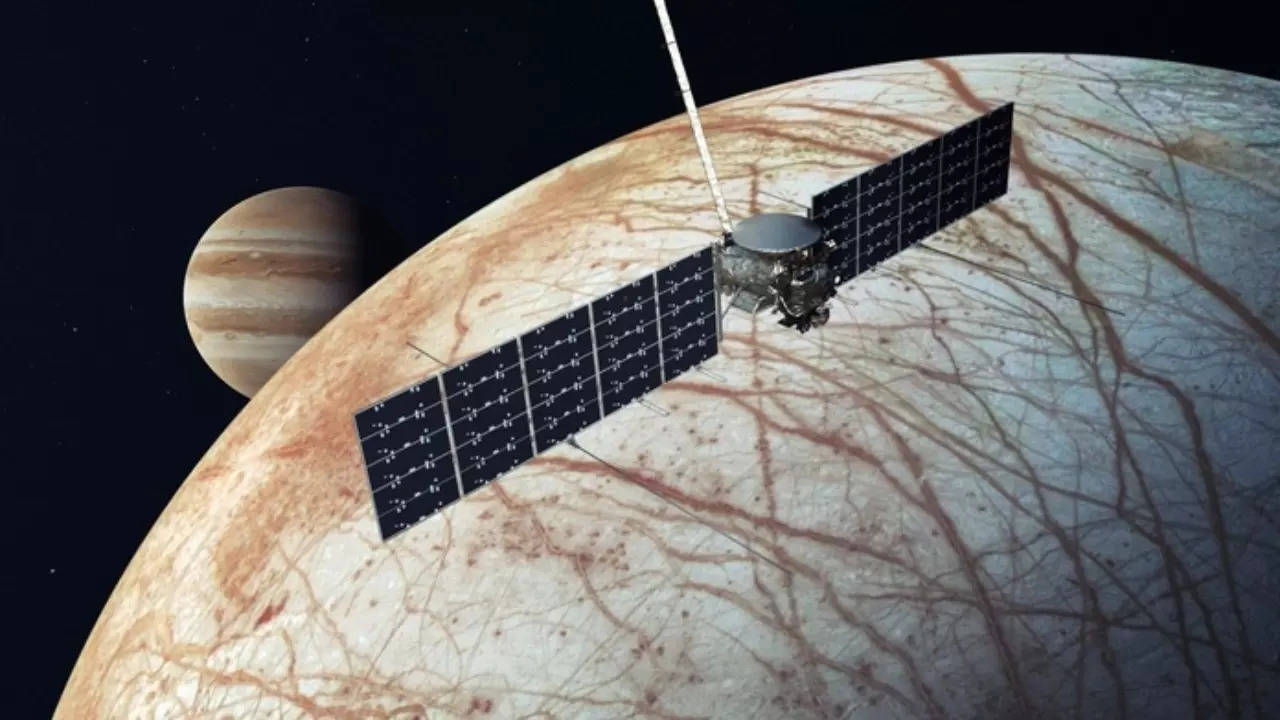Underwater snow below ice shelves on Earth can gives clues about ice shell on Jupiter's moon Europa, say researchers
Studying bizarre underwater snow below ice shelves on Earth can help in understanding the ice shell on Jupiter's moon Europa, according to researchers. There is reportedly a massive global ocean below Europa's thick icy crust.

An illustration of NASA's Europa Clipper spacecraft flying by Jupiter's moon Europa (Photo: NASA/IANS)
Researchers believe that studying bizarre underwater snow below ice shelves on Earth can help in understanding the ice shell on Jupiter's moon Europa. Notably, Europa is almost the size of the Earth's moon and has a rocky terrain. It is also reportedly surrounded by a global ocean and a miles-thick ice shell.
As per researchers, there is a massive global ocean below Europa's thick icy crust. The snow floats upwards onto inverted ice peaks and submerged ravines in this global ocean. The study was published in the journal Astrobiology.
As per the study, underwater snow is purer than other kinds of ice. It means that the ice shell on Europa could be much less salty. The study will help scientists prepare NASA's Europa Clipper spacecraft. The spacecraft will observe if life could be possible in Europa's ocean by using radar to see beneath the ice shell.
The study will help the scientist involved in the Clipper mission as the radar's visibility depends upon the amount of salt trapped in the ice. With this data, they can find out what the ice on Europa is made of. The team from the University of Texas at Austin said that getting information about Europa's ice shell will help scientists to discover the salinity and habitability of its ocean.
"When we're exploring Europa, we're interested in the salinity and composition of the ocean, because that's one of the things that will govern its potential habitability or even the type of life that might live there," said lead author Natalie Wolfenbarger, a graduate student researcher at the varsity's Institute for Geophysics as quoted by IANS. Notably, the new study also examined the two different ways that water freezes under ice shelves - congelation ice and frazil ice. Both ways reportedly make ice less salty than seawater.
Trending:
End of Article
Subscribe to our daily Newsletter!





Related News





Telegram Down In India: Users Face Error In Sending Messages On WhatsApp Alternative

NVIDIA Delivers First AI Supercomputer To OpenAI; Elon Musk Reacts

How To Maximise Generative AI Usage While Simultaneously Minimising Potential Risks

Boult Launches First Soundbars In India At Just Rs 4,999; Check Specifications, Features, More

Apple iPhone 14 Available With Massive Rs 16,701 Discount: Should You Buy?









